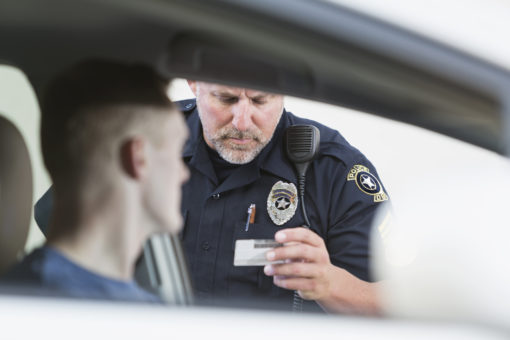Do you have to show ID in California any time a police officer asks you to? When considering this question, consider the case of Actress Daniel Watts. She made headlines after she was arrested by police in what many perceived to be a racist event. In truth, the actress’s refusal to show identification or assist with police inquiry was the reason for her detention, not racial prejudice.
An anonymous 911 caller reported “indecent exposure” by a couple in a car with the door open, which is how the incident got started. Officers found Watts and her boyfriend, chef Brian James Lucas, who appeared to match the description of the suspects, when they arrived to conduct their investigation. Lucas claims that it appeared from the questions the officers were asking that they had a hunch Watts could be engaged in prostitution. His suspicion sprang from the fact that Watts is black and he is white.
Watts refused to show the police her identification when they requested it. The police then handcuffed her and held her. Finally, Lucas provided Watts’ ID to the police, allowing them to do a background investigation. Watts was released without being charged when this investigation was finished.
Following this occurrence, many people have wondered whether they must show their ID to police or respond to their queries when they are pulled over on the street. The most important things to know are listed here. If you have questions, contact Chambers Law Firm at 714-760-4088 to speak to a criminal defense attorney.
There are no stop and identify laws in California
If you don’t have your ID, you can’t be arrested. California does not have “stop and identify” laws, which make it an arrestable offense for anyone who refuses to show identification while being investigated for a crime. Just because a police officer requests identification doesn’t mean you have to give it.
There is only one exception: if you are driving, you must present your driver’s license or risk being prosecuted with operating a vehicle without authorization. Keep in mind that if police already suspect you of committing a crime, they may arrest you for that offense rather than just for failing to present ID.
You risk being arrested if you don’t present identification after a misdemeanor. Normally, police will issue a ticket to you rather than making an arrest if they suspect you of a misdemeanor. They will, however, arrest you if you refuse to show identification.
You have the right to remain silent
You have the right to politely decline any requests from the police to talk with you. A search is not subject to your permission. You do not need to consent if police ask to search your person or your car. Make them obtain a warrant instead. If they conduct a search without your consent, do not, however, physically object or act hostile.
It may be to your advantage in some circumstances to collaborate. The quickest approach to allay police suspicion of you is frequently to cooperate with them by showing your ID and responding to any non-incriminating inquiries they may make.
If you are arrested, call a lawyer. Before police attempt to question you if you are arrested, you should be read your Miranda Rights. To help defend your rights at this time, you should exercise your right to speak with a knowledgeable criminal defense attorney. Never say anything to the police without your attorney present, beyond identifying yourself. Contact Chambers Law Firm at 714-760-4088 now for a free legal consultation.





